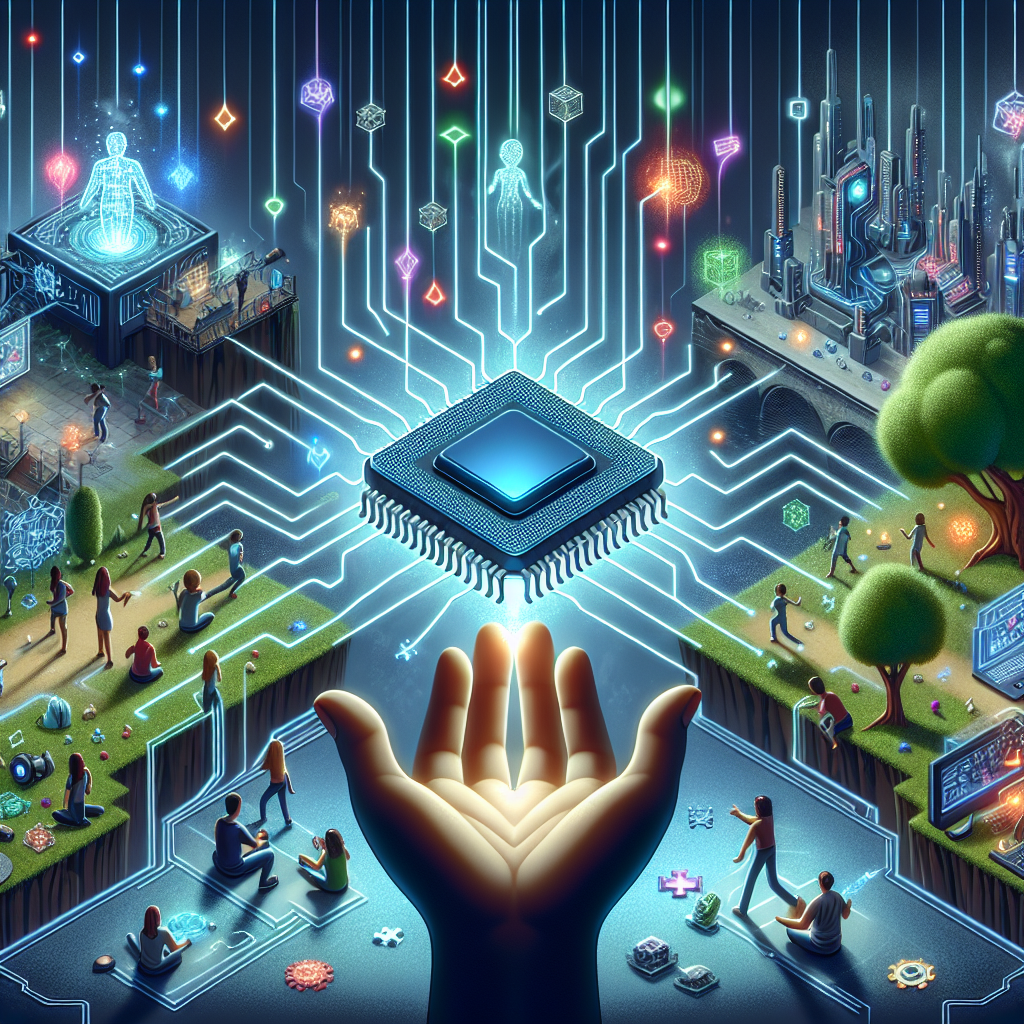The Role of AI in Video Games: Enhancing Gameplay and Immersion
Artificial Intelligence (AI) has become a crucial component in the development of modern video games. From creating more realistic non-player characters (NPCs) to enhancing gameplay mechanics, AI is revolutionizing the gaming industry in ways never seen before. In this article, we will explore the role of AI in video games and how it is enhancing gameplay and immersion for players around the world.
Enhanced NPC Behavior
One of the most significant ways AI is impacting video games is through the creation of more realistic NPCs. In the past, NPCs were often limited in their actions and responses, making them feel robotic and predictable. However, with advancements in AI technology, developers can now create NPCs that exhibit more human-like behavior, making the game world feel more alive and dynamic.
AI-powered NPCs can now adapt to player actions, making decisions based on their surroundings and the player’s behavior. For example, in a stealth game, NPCs may react differently depending on whether the player is sneaking around or running in guns blazing. This level of adaptability adds a new layer of challenge and immersion to gameplay, as players must now consider the consequences of their actions and strategize accordingly.
Improved Enemy AI
Enemy AI is another area where AI is making a significant impact on video games. In the past, enemy NPCs were often limited to following pre-determined paths and behaviors, making them easy to predict and defeat. However, with the use of advanced AI algorithms, developers can now create enemies that are more intelligent and challenging to face.
AI-powered enemies can now analyze the player’s movements and adapt their tactics accordingly. They can flank the player, take cover, and coordinate attacks with other enemies, making battles more intense and strategic. This level of intelligence adds a new level of challenge to games, forcing players to think on their feet and come up with creative solutions to overcome their adversaries.
Dynamic World Generation
AI is also being used to create more dynamic and immersive game worlds. In open-world games, AI algorithms can generate procedurally generated content, such as quests, NPCs, and environments, making each playthrough unique and unpredictable. This not only adds replay value to games but also creates a more immersive and living world for players to explore.
AI-powered world generation can also create more realistic and organic environments. NPCs can now interact with each other and the player in more meaningful ways, leading to emergent gameplay scenarios that are unique to each player. This level of dynamic world generation adds a new layer of depth and immersion to games, making them feel more alive and responsive to player actions.
Enhanced Gameplay Mechanics
AI is also being used to enhance gameplay mechanics in video games. From improved enemy behavior to more realistic physics simulations, AI is helping developers create more engaging and immersive gameplay experiences for players. For example, in racing games, AI algorithms can simulate realistic driving behavior for AI-controlled opponents, making races more challenging and exciting for players.
AI is also being used to create more immersive storytelling experiences in video games. By analyzing player choices and actions, developers can create branching narratives that adapt to player decisions, leading to multiple endings and outcomes. This level of player agency adds a new level of immersion to games, as players feel like their choices have a meaningful impact on the game world and story.
FAQs
Q: How does AI improve enemy behavior in video games?
A: AI algorithms can analyze player movements and adapt enemy tactics accordingly, making enemies more intelligent and challenging to face. Enemies can flank the player, take cover, and coordinate attacks with other enemies, creating more intense and strategic battles.
Q: How does AI enhance NPC behavior in video games?
A: AI-powered NPCs can exhibit more human-like behavior, adapting to player actions and making decisions based on their surroundings. This creates a more dynamic and immersive game world, as NPCs feel more alive and responsive to player actions.
Q: How does AI create more dynamic game worlds in video games?
A: AI algorithms can generate procedurally generated content, such as quests, NPCs, and environments, making each playthrough unique and unpredictable. This adds replay value to games and creates a more immersive and living world for players to explore.
Q: How does AI enhance gameplay mechanics in video games?
A: AI is used to create more engaging and immersive gameplay experiences, from improved enemy behavior to more realistic physics simulations. AI algorithms can simulate realistic driving behavior in racing games and create branching narratives in storytelling games, adding a new level of depth and immersion for players.
In conclusion, AI is playing a crucial role in enhancing gameplay and immersion in video games. From creating more realistic NPCs and enemies to generating dynamic game worlds and enhancing gameplay mechanics, AI is revolutionizing the gaming industry in ways never seen before. As AI technology continues to advance, we can expect even more innovative and immersive gaming experiences in the future.

